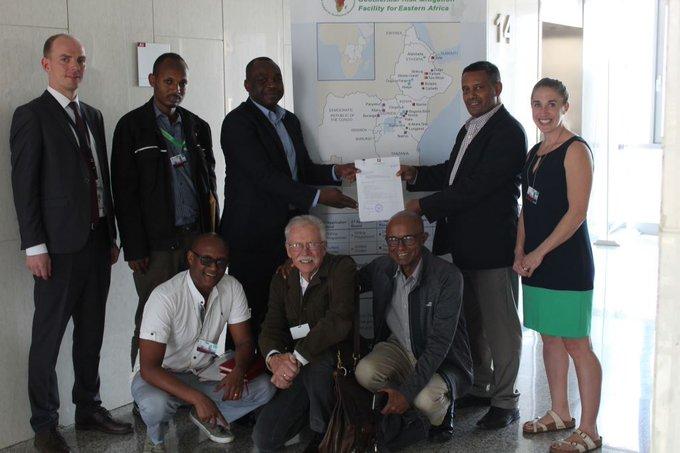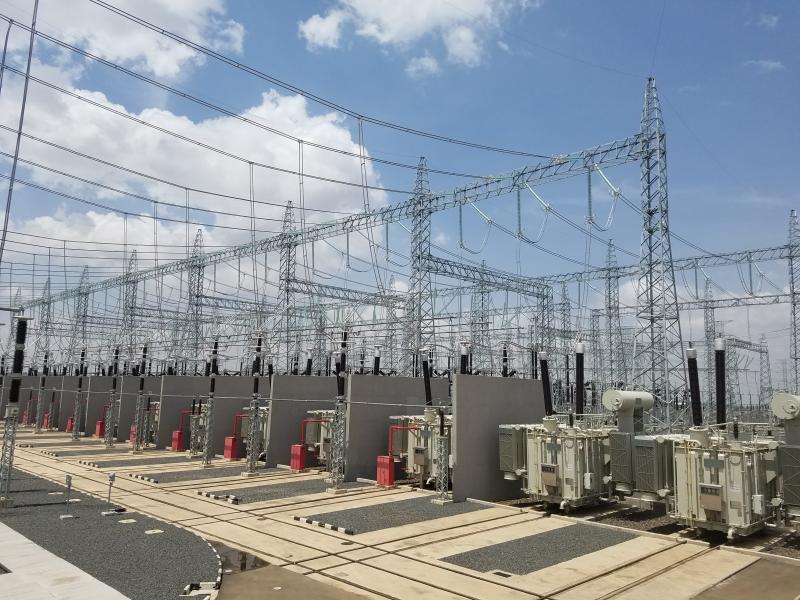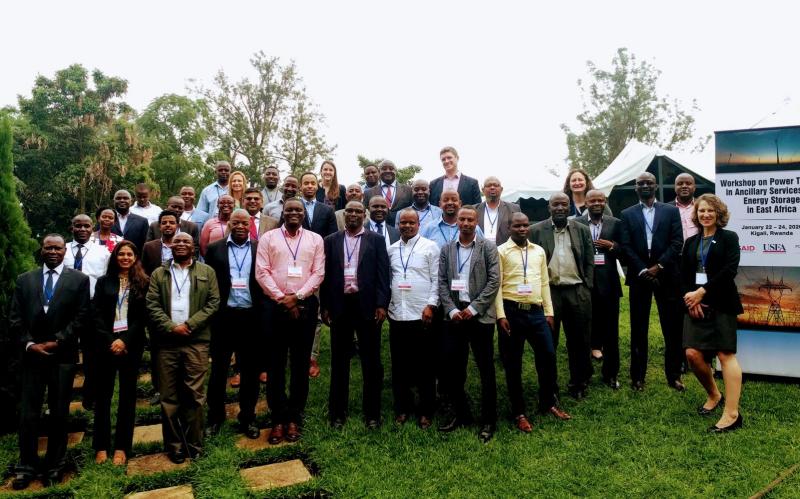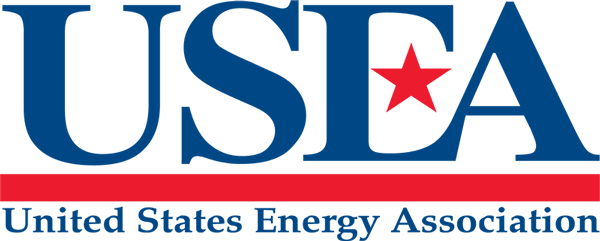Ethiopia
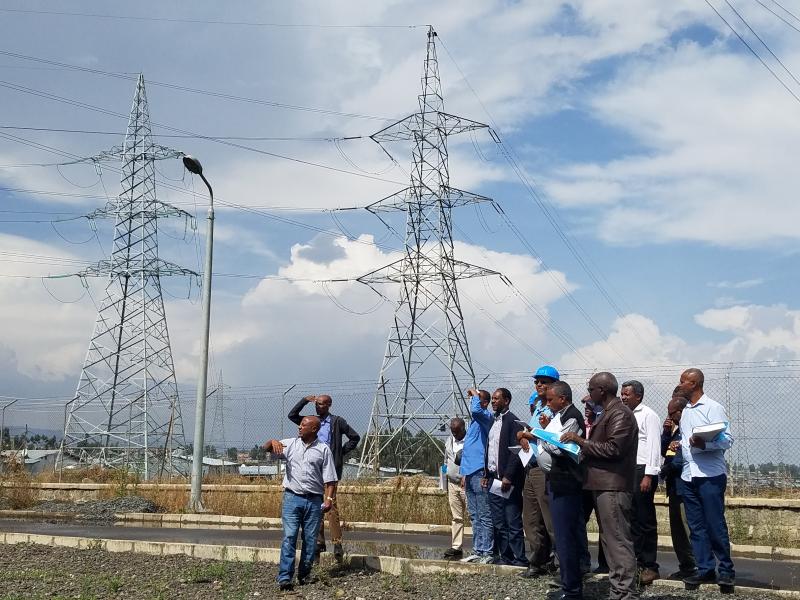
Ethiopia has the potential to generate over 60,000 megawatts (MW) of electric power from hydroelectric, wind, solar, and geothermal sources. As a result of Ethiopia’s rapid GDP growth and the government plan for universal access, Ethiopia's electricity sector must rapidly expand. The Energy Utility Partnership Program has been active in Ethiopia since 2012 to assist the state owned utiltiies as they expand and improve their service.
Developed the Geothermal Resource Development Proclamation
EAGP supported a team of experts to work alongside the Government of Ethiopia to develop a law that governs all geothermal resource development activity in the country. The Geothermal Resources Development Proclamation (GRDP) was ratified by Parliament in 2018.
Assisted Ethiopia Electric Power in Submitting a Geothermal Risk Mitigation Facility Grant Proposal for the Alalobeda Geothermal Development worth $7.7 million USD
EAGP provided a team of expert consultants to assist EEP in developing and submitting a grant proposal to the African Union Commission for a Geothermal Risk Mitigation Facility (GRMF) grant. The grant, once fully awarded, would provide EEP with over $7 million in funding for drilling at the Alalobeda field in the Afar Region of Ethiopia.
ETHIOPIAN GEOTHERMAL PARTNERSHIP (2014-2019)
The Government of Ethiopia (GoE) is aggressively working to develop their nation’s 7,000 MW geothermal resources. GoE has set a target generating capacity of 2,500 MW from geothermal resources by 2030. In order to support the GoE’s objectives, the United States Government (USG), through Power Africa, is collaborating with both the private and public sector and other development finance institutions (DFIs) to accelerate the development of Ethiopia’s geothermal resources.
The East African Geothermal Partnership (EAGP) has been working in Ethiopia since 2014 to promote the development of geothermal resources and increase private sector investment in the geothermal sector. EAGP provides capacity building and technical assistance as well as training to Ethiopian agencies involved in geothermal development including the Ethiopian Energy Authority (EEA), Ethiopian Electric Power (EEP) and Geological Survey of Ethiopia.
EAGP’s core objectives in Ethiopia include:
- Supporting Improved Enabling Environments
- Strengthening the Capacity of Local Institutions
Ethiopia achieved the following results through this program:
Developed the Geothermal Resource Development Proclamation
EAGP supported a team of experts to work alongside the Government of Ethiopia to develop a law that governs all geothermal resource development activity in the country. The Geothermal Resources Development Proclamation (GRDP) was ratified by Parliament in 2018.
Assisted Ethiopia Electric Power in Submitting a Geothermal Risk Mitigation Facility Grant Proposal for the Alalobeda Geothermal Development worth $7.7 million USD
EAGP provided a team of expert consultants to assist EEP in developing and submitting a grant proposal to the African Union Commission for a Geothermal Risk Mitigation Facility (GRMF) grant. The grant, once fully awarded, would provide EEP with over $7 million in funding for drilling at the Alalobeda field in the Afar Region of Ethiopia.
Developed a Relational Geothermal Database
EAGP collaborated with three agencies in Ethiopia that each work with geothermal data including the Ethiopian Energy Authority (EEA), Ethiopian Electric Power (EEP), the Geological Survey of Ethiopia. A team of geothermal data experts led remote and in-person trainings to establish international standards in data management principles and practices, standardize these practices across all three agencies, collect and clean all geothermal data within the agencies, and work with the long-term goal of establishing a relational database to host all geothermal data from Ethiopia.
Trained the Staff of the Geothermal Directorate of the Ethiopian Energy Authority at the African Geothermal Center of Excellence
EAGP collaborated with the African Geothermal Center of Excellence to provide three weeks of geothermal training to the newly formed EEA geothermal directorate. The training equipped EEA’s staff to build their context of the wider geothermal sector to better prepare their team to regulate geothermal licensing and regulation in Ethiopia.
ETHIOPIAN ELECTRIC UTILITY (EEU) PARTNERSHIP (2012-2019)
USEA’s Ethiopian Electric Utility (EEU) Partnership focused on two major areas – substation operation and maintenance with a “train-the-trainers” component and leadership development for EEU mid- and senior-level executives.
The Substation Operation & Maintenance “Train-the-Trainers” Series was designed to achieve two major objectives - to improve the capacity of EEU for safe and efficient operation and maintenance of distribution substations, and to enhance their internal training capacity. Four training sessions were held in 2018 – 2019, including a session on Safety and /Earthing, on Safety and Isolating Equipment (Circuit Breakers), on Safety and Transformer Maintenance Grounding, and on Safety and Switching. These training sessions allowed over 30 EEU distribution stations personnel to acquire skills necessary to improve maintenance and internal training programs.
Trained Over 500 Substation Engineers
The program also identified and recommended ten EEU substation personnel for undertaking internal training responsibilities, and two supervisors for serving as mentors to these trainers. Two of EEU’s senior substation personnel have already trained 534 substation supervisors, technicians, and engineers from various distribution substations across Ethiopia on issues of electrical safety.
Created Training Curriculum and Manuals to Improve In House Training
The series deliverables included full training curriculum, including manuals and all other training resources for each session. At the end of the training series these materials will be used by EEU to develop their own “in-house” training capacity at a new Center for Excellence, being established by the utility.
The Leadership Development series was designed to assist EEU mid- and senior-level management to improve their knowledge, competence and techniques in managing their staff and measuring their employees’ performance. In particular, the program focused on delivering greater efficiency and effectiveness, increasing personal authority, improving morale, and profit and productivity.This acquired knowledge and experience will lead to positive changes to be introduced to EEU policies, management practices and organizational structure to improve productivity, profitability, personnel management and safety culture.
EAST AFRICA GEOTHERMAL PARTNERSHIP (EAGP)
The EAGP, which ran from 2012 to 2018, promoted the development of geothermal energy resources and projects in East Africa. The EAGP program, which was aa partnership between USAID and the Geothermal Energy Association (GEA), encouraged and facilitated the involvement of the U.S. geothermal industry in the region. EAGP focused on six priority countries: Djibouti, Ethiopia, Kenya, Rwanda, Tanzania, and Uganda.
Through EAGP, USEA provided technical and transaction advisory support and capacity building to public organizations and government ministries involved in geothermal development in the region through executive exchanges, workshops and short-term technical assistance assignments to learn about geothermal best practices from their counterparts in the U.S. and third countries.
Facilitated U.S. Business Connections
Through the EAGP-sponsored exchange program to the GEA Expo and GRC Annual Meeting, Ethiopian and Kenyan geothermal officials made contacts with over 70 U.S. firms that supply many of their needed goods and services. EAGP delegates and their senior colleagues in attendance were able to generate new interest in the EA geothermal market among a larger audience of U.S. companies, through presentations on opportunities and procurement needs in EA (organized by EAGP and GEA). The successful event has resulted in a plan to engage U.S. industry members to give feedback on GDC’s, and possibly KenGen’s, tender design. This will improve GDC’s ability to execute transactions related to their goods and services tenders.
Provided Guidance for Development of East African Geothermal Centre of Excellence
Worked with industry experts and advisors to provide feedback and guidance based on the findings of the Icelandic International Development Agency (ICEIDA) Feasibility Study for the East African Geothermal Centre of Excellence and help to design curricula for the Centre
Assisted with Creation of Joint Development Agreement for PPPs
EAGP facilitated a short-term technical assistance program for Kenya’s GDC on producing a joint development agreement for PPPs in geothermal development. EUPP worked with GDC and MoF on the legal structures, financially viable project structures for PPPs and developed a set of recommendations for GDC and produced a market assessment of GDC’s proposed joint development structures.
Assisted in Development of Geothermal Strategies
Provided support to USAID and Power Africa Transactions and Reforms Program (PATRP) in updating and implementing the Power Africa Multi-Donor Geothermal Strategy for East Africa and assisting USAID in developing its own internal Power Africa inter-agency geothermal strategy.
EASTERN AFRICA POWER POOL PARTNERSHIP (EAPP)
Ethiopia is a member of USEA’s regional Eastern Africa Power Pool (EAPP) Partnership that currently focuses on advanced modeling and long-term planning. USEA will facilitate a series of training programs on load flow modeling and conducting security analyses using PSS/E software platform. These trainings will address insufficient levels of modeling and planning capacity among EAPP planning staff and planning committee members in individual countries. It will also build EAPP’s capacity in the advanced application of the PSS/E software, specifically in advanced power flow, contingency, voltage stability and dynamic analysis, transmission planning, power system operation, and the integration of renewable energy and HVDC systems.
EASTERN AFRICA TRANSMISSION PLANNING PROGRAM (EATP)
The Eastern Africa Regional Transmission Planning Program (EATP) was established in 2014 to foster regional cooperation in transmission planning and analysis between Ethiopia, Burundi, Kenya, Tanzania, Rwanda, and Uganda. The EATP developed the capacity of transmission planners in Kenya, Ethiopia and Tanzania to develop regional electric power transmission corridors that will (1) serve as the backbone infrastructure for trade and exchange of electricity, (2) enable investment in new electric power generation plants, (3) support integration of clean energy generation resources, and (4) improve system reliability. The EATP created a Working Group that continued to further refine the national planning models to support regional harmonization and reviewed regional models. The Working Group members include the following organizations: the Eastern African Power Pool, EEP, Kenya Electricity Transmission Company, Ltd., KPLC, TANESCO, Régie de Production et Distribution d'Eau et d'Electricité, Rwanda Energy Group, Ltd., and Uganda Electricity Transmission Company, Ltd. Under EUPP, the EATP developed regional network planning models, beginning with a load flow model for East Africa, progressing to dynamic models over time. The members of the EATP Working Group were trained to prepare each of the models, expanding the pool of qualified network planners in East Africa to continuously fine tune the regional planning model. Topics covered under this partnership included:
- EATP Regional Network Load Flow Models;
- EATP Load Flow and Dynamic Training;
- Study to Calculate Losses for the EKT Wheeling Transaction; and
- NELSAP/TRACTABEL Study Review.
National Power Balance Settling
The development of a consensus for settling national power balances (import/export) within the regional model for each country. The national power balances will form the basis of the network analysis to be completed using the 2020 load flow model.
Development of a Regional Project Tracker
The initiation of a Project Tracker to determine the probability of commissioning generation and transmission projects within the planning horizon being analyzed (2020).
Adoption of Terms of Reference
EATP countries adopted a Terms of Reference to conduct a sensitivity analysis of regionally significant candidate transmission investment projects using agreed upon parameters.
Self-Assessment Dynamic Modeling and Analysis Tool Developed
The creation of an EATP Self-assessment Dynamic Modeling and Analysis Tool to enable transmission utilities to identify network planning institutional and human resource and capacity deficits and benchmark their capacity against one another.
Creation of Standard Operating Procedures Manual
The creation of a step-by-step Standard Operating Procedures Manual that outlines the planning criteria, defines strict requirements and gives directions and recommendations for construction, usage and update of the EATP regional model in load flow software.
NILE EQUATORIAL LAKES SUBSIDIARY ACTION PROGRAM (NELSAP) PARTNERSHIP
Ethiopia is a member of USEA’s regional Nile Equatorial Lakes Subsidiary Action Program (NELSAP) Partnership. In 2016 and 2017, the NELSAP Partnership focused on capacity building activities for NELSAP member states (Ethiopia, Kenya, Rwanda, Tanzania and Uganda) on the issues of contract and project management. EUPP facilitated several regional workshops for project management specialists, engineers, financial analysist and legal advisors from East African utilities on contract development and negotiations, best practices in procurement, risk management, and dispute resolution. Workshop deliverables included customized project management documents and templates, as well as action plans for regional utilities to improve their contract and project management practices.
In 2019, the NELSAP Partnership’s focus shifted to power trading with the following objectives:
-
Creating awareness among regional power industry stakeholders on possible mechanisms for allocation and compensation for ancillary service costs, as well as energy storage alternatives, based on U.S. and other international practices;
-
Providing senior regional government officials and utility management with clear understanding of the existing gaps in the current set-up of ancillary services in the East African region;
-
Creating a platform for generating sustainable discussions among East African energy stakeholders on policy, regulatory and market barriers for developing both local and regional ancillary and energy storage markets.

